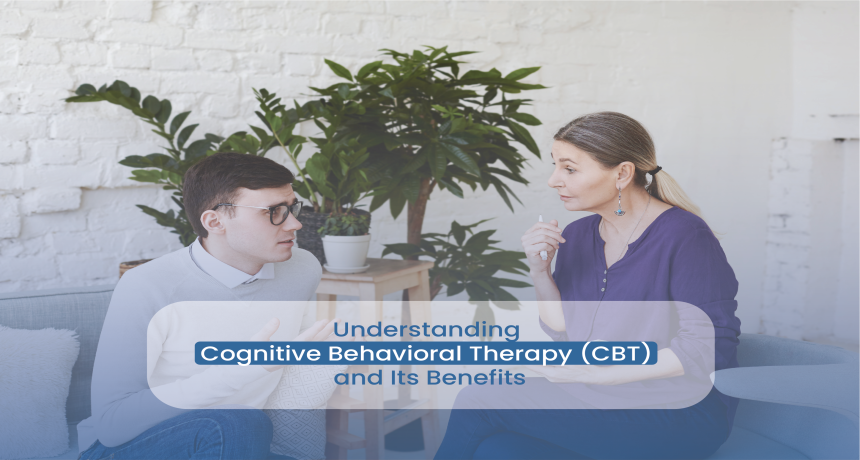Understanding Cognitive Behavioral Therapy (CBT) and Its Benefits
2025-05-07 CBT is a structured, evidence-based therapy for anxiety, depression, and stress-related disorders. It focuses on changing unhelpful thought patterns and behaviors. At L&B Clinic, CBT is integrated into holistic care plans tailored to each individual's mind-body profile. Techniques include journaling, cognitive restructuring, exposure therapy, and relaxation training. Ever caught yourself spiraling into worry or negative thinking — and then noticed your digestion going haywire, or your energy dropping? That’s not just a coincidence. The way we think directly impacts how our body functions. At L&B Clinic, we’ve seen this connection up close. Clients dealing with anxiety often experience gut issues. Those under chronic stress struggle with fatigue, hormonal imbalance, and even autoimmunity. Why? Because the mind and body are deeply linked — and emotional stress is one of the biggest silent disruptors of long-term health. This is where Cognitive Behavioral Therapy (CBT) comes in. Unlike traditional talk therapy, CBT is highly practical. It gives you the tools to spot and shift thought patterns that are keeping you stuck — whether that’s overthinking, self-doubt, or fear of failure. We integrate CBT into our broader longevity and integrative wellness programs. Because in our philosophy, you can’t truly heal the body without healing the mind. Your thoughts shape your biology. Chronic stress, anxiety, and depression don’t just affect how you feel — they influence inflammation, gut health, immune function, and even your risk of chronic diseases. At L&B Clinic, we believe that long-term wellness is impossible without emotional balance. That’s why Cognitive Behavioral Therapy (CBT) plays a central role in our integrative care plans. CBT empowers individuals to identify, challenge, and replace distorted thoughts and behaviors — leading to real, measurable change. Cognitive Behavioral Therapy is a time-bound, structured form of psychotherapy backed by decades of scientific research. It’s designed to help individuals identify and modify harmful thinking and behavioral patterns that contribute to emotional distress. Originally developed by Dr. Aaron Beck in the 1960s, CBT is now widely used for: Anxiety disorders (generalized anxiety, social anxiety, phobias) Depression Obsessive-compulsive disorder (OCD) PTSD Sleep disorders Chronic pain or illness-related stress CBT is based on the idea that thoughts, feelings, and behaviors are interconnected. By changing how we think and act, we can directly influence how we feel. For example: Thought: "I always fail at everything." Feeling: Hopeless, unmotivated Behavior: Avoid tasks, withdraw Result: Increased depression or anxiety CBT interrupts this cycle by helping clients: Recognize negative automatic thoughts Examine the evidence behind them Replace them with realistic, empowering thoughts Practice new behaviors that reinforce change CBT is typically delivered in 8–12 weekly sessions, and may include at-home exercises between visits. CBT is appropriate for: Adults with chronic stress, anxiety, or low mood Teens facing academic or social pressures Individuals dealing with grief, transitions, or burnout Patients managing chronic health conditions with emotional symptoms At L&B Clinic, CBT is personalized — paired with nutrition, gut-brain axis testing, and mindfulness tools for a full-spectrum mental reset. CBT is one of the most scientifically validated psychotherapies in the world. A meta-analysis in Cognitive Therapy and Research (2012) found CBT effective in 60–80% of anxiety and depression cases. The American Psychological Association endorses CBT as a gold-standard treatment. Neuroimaging studies show CBT can change brain activity in areas linked to fear and emotional regulation. At L&B Clinic, we don’t just offer CBT — we integrate it into a full-spectrum healing plan that addresses the physical, emotional, and biochemical roots of anxiety and depression. Here’s how we guide you through recovery: At every stage, Dr. Deepika Krishna’s team works closely with you to ensure the plan evolves with your needs — not just symptom control, but whole-person healing. "Emotional health is not separate from physical health. At L&B, CBT is more than talk therapy — it’s a tool to rewire the nervous system, improve digestion, reduce inflammation, and promote long-term resilience." — Dr. Deepika Krishna, Founder, L&B Clinic FAQs on Understanding Cognitive Behavioral Therapy Yes. CBT complements medications and can help reduce reliance over time under supervision. CBT is structured, goal-oriented, and focused on present patterns rather than past events. Yes, with adjusted techniques. We offer pediatric CBT at L&B Clinic. Yes. CBT has proven benefits in reducing stress-related inflammation and gut-brain axis symptoms.
If you’re feeling stuck in cycles of anxiety, burnout, or low mood — CBT can help you break free. L&B Clinic’s CBT programs combine expert mental health care in Delhi, gut microbe test in Delhi, lifestyle counseling, and stress biology insights. Book your consultation today and begin the journey to calm, clarity, and mental resilience. References: Hofmann, S.G. et al. (2012). The Efficacy of Cognitive Behavioral Therapy: A Review of Meta-analyses. Cognitive Therapy and Research American Psychological Association. (2020). Clinical Practice Guidelines for Psychotherapy National Institute of Mental Health. (2023). Cognitive Behavioral Therapy OverviewKey Takeaways:
Introduction: Why Mind Health Matters in Longevity
What Is CBT?
How Does CBT Work?
CBT Techniques Used at L&B Clinic
Who Can Benefit from CBT?
Eidence Supporting CBT
How L&B Clinic Helps You Heal Anxiety and Depression
Step-by-Step Healing Action Plan
Dr. Deepika Krishna on Integrating CBT with Holistic Care
1. How quickly does CBT work?
Most people notice improvement within 4–6 sessions, with full benefits in 2–3 months.2. Can I do CBT if I’m already on medication?
3. What makes CBT different from other therapies?
4. Is CBT suitable for children?
5. Can CBT help with physical symptoms like IBS or fatigue?
Take the Next Step: Mind-Body Reset with L&B Clinic
Reviewed by: Dr. Deepika Krishna, Founder, L&B Clinic
.png)















